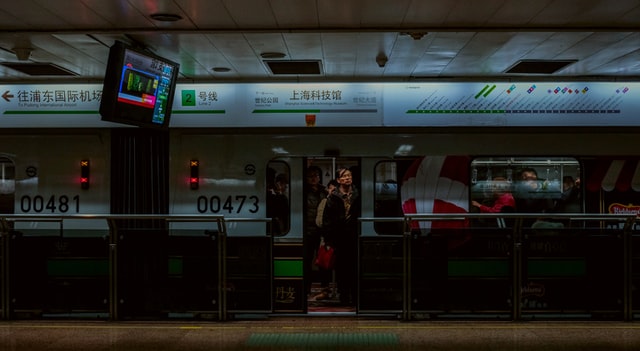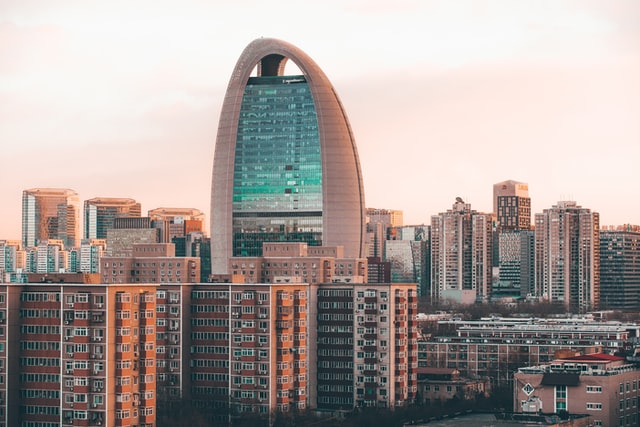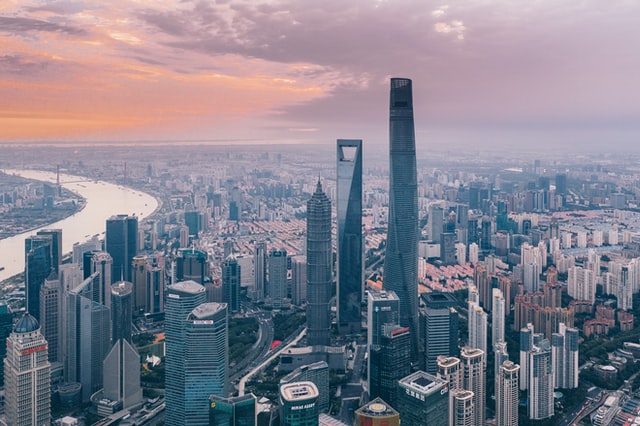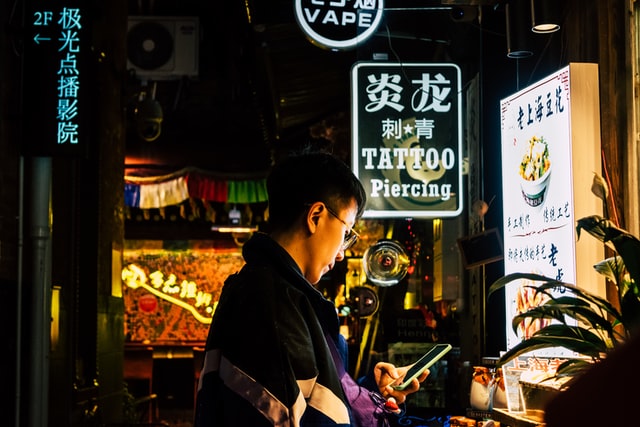If you’ve read our post about 20 Reasons to Teach English in China, you might be thinking about doing the Teach in China program. One of the plus sides of this program is that Teachers earn $1900-$3000 per month. But you might be wondering, is $1900-$3000 per month enough to cover the cost of living in China? In this post, we’ll cover the costs of living in China including average costs for:
- housing
- transportation
- food
- entertainment
- medical services and more

General Information
Before we start, we want to clarify that the cost of living in China depends on your lifestyle, how much luxury you want, and your lifestyle back home (what you’re already used to).
Obviously, living costs vary based on your lifestyle. You could live very cheaply eating top ramen all the time (college days, anyone?) or eat sushi at a 5-star restaurant every night. Or maybe you’re somewhere in between. In general, the cost of living in China is lower than in the United States and Western European countries.
Competitive salary + low cost of living = ?
A lot of fun, friends. A lot of fun.
If you’ve ever thought about living in another country for awhile, China is a great option. With our Teach in China program, you get the chance to work in China as an English teacher. Our teachers can make a competitive salary while getting an incredible experience in another culture. And what does a good salary plus a low cost of living equal? A lot of fun friends, a lot of fun.

Housing costs
Did you know China has over 1.4 billion people living in about 3.7 million square miles? Yep! With those kinds of numbers, China has something for everyone. Since most of our applicants want to live in large, modern cities, we’re going to focus on those areas. (If you are interested to live in the countryside, there are opportunities in smaller cities and towns as well.)
1. Rent for a private, furnished apartment ranges from $230 to $1200 depending on the city.
Rent for a private, furnished one-room apartment in the city center:
| City | USD (Dollars) |
| Beijing | $765 – $1200 |
| Shanghai | $765 – $1200 |
| Guangzhou | $380 – $680 |
| Chengdu, Hangzhou, Suzhou | $300 – $535 |
| Zhengzhou, Wuhan, Changsha, Xi’an | $275 – $380 |
| Urumqi | $230 |
In our Teach in China program, accommodations are included. However, you’ll need to pay your own utilities.
2. Utilities are super affordable.
Here are some typical utility expenses on a monthly basis:
| Utility | USD (Dollars) |
| Phone (includes free calls and mobile data) | $15 |
| Electricity, water, gas, heating, apartment tax | $30 to $45 |
| WiFi | $8 to $15 |
| VPN | $2.50 |

Transportation costs
Major cities in China have robust subway systems. They are cheap and fast. A typical bus ride only costs about 30¢ (about 1-2 RMB). A short taxi ride costs about $2 to $3 USD. You can also use DiDi (the Chinese version of Uber/Lyft). If you prefer to drive, a gallon of gas costs a little over $4 USD. Just keep in mind that there tends to be a lot of traffic, so most expats choose not to drive.
3. Transportation is really cheap, especially if you don’t mind going by subway.

Food and grocery costs
China has an incredible nightlife scene. There are tons of restaurants, sporting events, concerts, shopping malls, museums, and more. There’s always something to do. And being in the city makes everything accessible since public transportation can take you basically anywhere.
5. A movie ticket costs around $5 to $9.
Here are some basic costs for entertainment:
| One movie ticket | $5 – $9 |
| A beer at a bar or a club in a major city | $5 |
| A cocktail | $10 |

Medical expenses and hospital costs
6. Local healthcare is affordable — if you don’t have local or international insurance, say goodbye to your wallet.
If you need medical treatment in China and you don’t have local or international insurance, be prepared to pay handsomely. Specialty expat clinics are very expensive. You’ll find doctors and nursing professionals who speak English, but you’ll pay for that convenience. On the other hand, local public hospitals in China are affordable and efficient. If you are doing the Teach in China program, our local Chinese colleagues will help you arrange medical insurance. And if you get sick during your stay, they will go with you to the doctor and facilitate translation with them. This insurance also covers hospital stays and treatment costs due to an accident.

Salary differences
7. Like other countries, there is a big difference in salary depending on what city you’re in.
Just as with cost of living, there is also a significant difference in salary costs depending on which city you’re in. For example, in the largest cities such as Beijing or Shanghai, average monthly salary is about $760 to $1370 per month. In other large cities such as Guangzhou, Chengdu, or Hangzhou, the average monthly salary $450 to $700 per month. Compared to local salaries, teachers in our Teach in China program actually make quite a high salary. In the largest cities, foreign expats can make about $1800 to $4200 per month. (Salary varies based on work experience.) In large cities, the salary for native English speakers ranges from $1800 to $2700 per month. Non-native speakers can make $900 to $2100 per month.

China’s income tax law
8. Compared to European standards, the personal income tax rate in China is fairly low.
China has a graduated income tax (meaning it increases; those who make more money pay a higher percentage in taxes). Here are the tax rates issued by China’s State Administration of Taxation (SAT):
| Monthly Salary | Tax Rate |
| 0 – 3,000 RMB | 3% |
| 3,001 – 12,000 | 10% |
| 12,001 – 25,000 | 20% |
| 25,001 – 35,000 | 25% |
| 35,001 – 55,000 | 30% |
| 55,001 – 80,000 | 35% |
| 80,000 and higher | 45% |
Like most Western countries, the tax year is from January 1st to December 31st. If you work in China, you need to file your tax declaration to the State Administration of Taxation by March 31st at the latest. If you do our Teach in China program, this is normally managed by the school which employs you.
What would you want to do for entertainment in China?
China has an incredible nightlife scene. There are tons of restaurants, sporting events, concerts, shopping malls, museums, and more. There’s always something to do. And being in the city makes everything accessible since public transportation can take you basically anywhere.
5. A movie ticket costs around $5 to $9.
Here are some basic costs for entertainment:
| One movie ticket | $5 – $9 |
| A beer at a bar or a club in a major city | $5 |
| A cocktail | $10 |

Medical expenses and hospital costs
6. Local healthcare is affordable — if you don’t have local or international insurance, say goodbye to your wallet.
If you need medical treatment in China and you don’t have local or international insurance, be prepared to pay handsomely. Specialty expat clinics are very expensive. You’ll find doctors and nursing professionals who speak English, but you’ll pay for that convenience. On the other hand, local public hospitals in China are affordable and efficient. If you are doing the Teach in China program, our local Chinese colleagues will help you arrange medical insurance. And if you get sick during your stay, they will go with you to the doctor and facilitate translation with them. This insurance also covers hospital stays and treatment costs due to an accident.

Salary differences
7. Like other countries, there is a big difference in salary depending on what city you’re in.
Just as with cost of living, there is also a significant difference in salary costs depending on which city you’re in. For example, in the largest cities such as Beijing or Shanghai, average monthly salary is about $760 to $1370 per month. In other large cities such as Guangzhou, Chengdu, or Hangzhou, the average monthly salary $450 to $700 per month. Compared to local salaries, teachers in our Teach in China program actually make quite a high salary. In the largest cities, foreign expats can make about $1800 to $4200 per month. (Salary varies based on work experience.) In large cities, the salary for native English speakers ranges from $1800 to $2700 per month. Non-native speakers can make $900 to $2100 per month.

China’s income tax law
8. Compared to European standards, the personal income tax rate in China is fairly low.
China has a graduated income tax (meaning it increases; those who make more money pay a higher percentage in taxes). Here are the tax rates issued by China’s State Administration of Taxation (SAT):
| Monthly Salary | Tax Rate |
| 0 – 3,000 RMB | 3% |
| 3,001 – 12,000 | 10% |
| 12,001 – 25,000 | 20% |
| 25,001 – 35,000 | 25% |
| 35,001 – 55,000 | 30% |
| 55,001 – 80,000 | 35% |
| 80,000 and higher | 45% |
Like most Western countries, the tax year is from January 1st to December 31st. If you work in China, you need to file your tax declaration to the State Administration of Taxation by March 31st at the latest. If you do our Teach in China program, this is normally managed by the school which employs you.
What would you want to do for entertainment in China?
[/et_pb_text][/et_pb_column][/et_pb_row][/et_pb_section]Note that imported, western brands are significantly more expensive than local items. Products which aren’t typically Chinese (i.e. coffee, cheese, wine, etc.) are more expensive. Fresh produce, local foods, clothing, and domestically manufactured electronics are all reasonably-priced in China.
4. Local foods at local markets will be cheaper than Western name-brands at larger supermarkets.
Here are some samples for the items prices:
| One pound boneless chicken breast | $2.50 |
| A dozen eggs | $2.50 |
| A pound of apples/bananas/oranges | $1 |
| A 2-liter bottle of soda | $1.25 |
| A loaf of white bread | $1.50 |
| A bowl of rice/noodles at a restaurant | $1 – $3 |
| Eating at an expensive restaurant with friends | $12 – $45 |

Entertainment and social life costs
China has an incredible nightlife scene. There are tons of restaurants, sporting events, concerts, shopping malls, museums, and more. There’s always something to do. And being in the city makes everything accessible since public transportation can take you basically anywhere.
5. A movie ticket costs around $5 to $9.
Here are some basic costs for entertainment:
| One movie ticket | $5 – $9 |
| A beer at a bar or a club in a major city | $5 |
| A cocktail | $10 |

Medical expenses and hospital costs
6. Local healthcare is affordable — if you don’t have local or international insurance, say goodbye to your wallet.
If you need medical treatment in China and you don’t have local or international insurance, be prepared to pay handsomely. Specialty expat clinics are very expensive. You’ll find doctors and nursing professionals who speak English, but you’ll pay for that convenience. On the other hand, local public hospitals in China are affordable and efficient. If you are doing the Teach in China program, our local Chinese colleagues will help you arrange medical insurance. And if you get sick during your stay, they will go with you to the doctor and facilitate translation with them. This insurance also covers hospital stays and treatment costs due to an accident.

Salary differences
7. Like other countries, there is a big difference in salary depending on what city you’re in.
Just as with cost of living, there is also a significant difference in salary costs depending on which city you’re in. For example, in the largest cities such as Beijing or Shanghai, average monthly salary is about $760 to $1370 per month. In other large cities such as Guangzhou, Chengdu, or Hangzhou, the average monthly salary $450 to $700 per month. Compared to local salaries, teachers in our Teach in China program actually make quite a high salary. In the largest cities, foreign expats can make about $1800 to $4200 per month. (Salary varies based on work experience.) In large cities, the salary for native English speakers ranges from $1800 to $2700 per month. Non-native speakers can make $900 to $2100 per month.

China’s income tax law
8. Compared to European standards, the personal income tax rate in China is fairly low.
China has a graduated income tax (meaning it increases; those who make more money pay a higher percentage in taxes). Here are the tax rates issued by China’s State Administration of Taxation (SAT):
| Monthly Salary | Tax Rate |
| 0 – 3,000 RMB | 3% |
| 3,001 – 12,000 | 10% |
| 12,001 – 25,000 | 20% |
| 25,001 – 35,000 | 25% |
| 35,001 – 55,000 | 30% |
| 55,001 – 80,000 | 35% |
| 80,000 and higher | 45% |
Like most Western countries, the tax year is from January 1st to December 31st. If you work in China, you need to file your tax declaration to the State Administration of Taxation by March 31st at the latest. If you do our Teach in China program, this is normally managed by the school which employs you.
What would you want to do for entertainment in China?
[/et_pb_text][/et_pb_column][/et_pb_row][/et_pb_section]


0 Comments